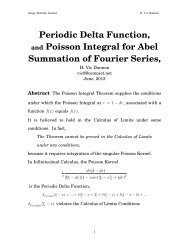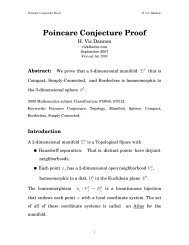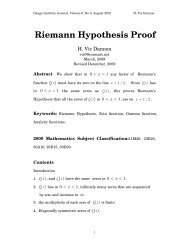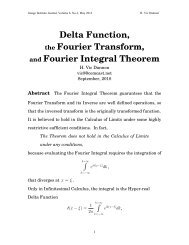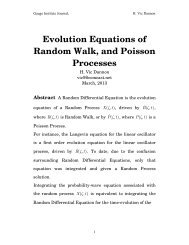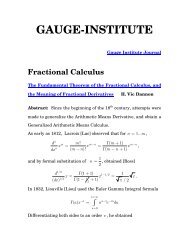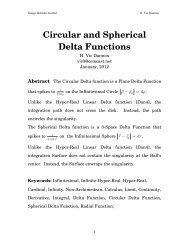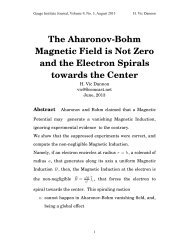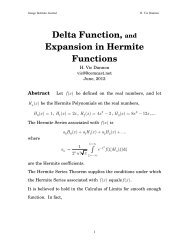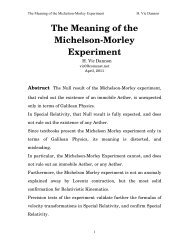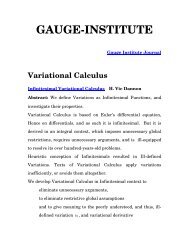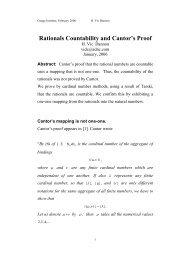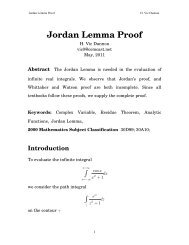Fractional Calculus - Gauge-institute.org
Fractional Calculus - Gauge-institute.org
Fractional Calculus - Gauge-institute.org
You also want an ePaper? Increase the reach of your titles
YUMPU automatically turns print PDFs into web optimized ePapers that Google loves.
<strong>Gauge</strong> Institute Journal, Volume 5, No 1, February 2009H. Vic DannonSince the <strong>Fractional</strong> Derivative, and <strong>Fractional</strong> Integral operatorsapply successively [Old] under the ruleα β α+βd d df ( x) =f( x),( dx ( −a) ) ( dx ( −a) ) ( dx ( −a))α β α+βwe have the Fundamental Theorem of the <strong>Fractional</strong> <strong>Calculus</strong>d1 12 2d−( dx ( −a) ) ( dx ( −a))−1 12 2f ( x) = f( x).Applying to both sides the <strong>Fractional</strong> Derivative operatorwe have,d12( dx ( − a))121 1 1 12 2 2 2d d d df ( x) =f( x)−( dx ( −a) ) ( dx ( −a) ) ( dx ( −a) ) ( dx ( −a))−1 1 1 12 2 2 2Composing the first two operators, we conclude thatThat is,−1 12 2d d df ( x) =f( x)( dx ( − a))−( dx ( −a) ) ( dx ( −a))( )1 12 21 12 2( − )DF x = D f ( x).This outline becomes the proof if we supplement it with the proofof the exponent rule [Old]. Instead, we give a direct derivation ofthe Fundamental Theorem.9



